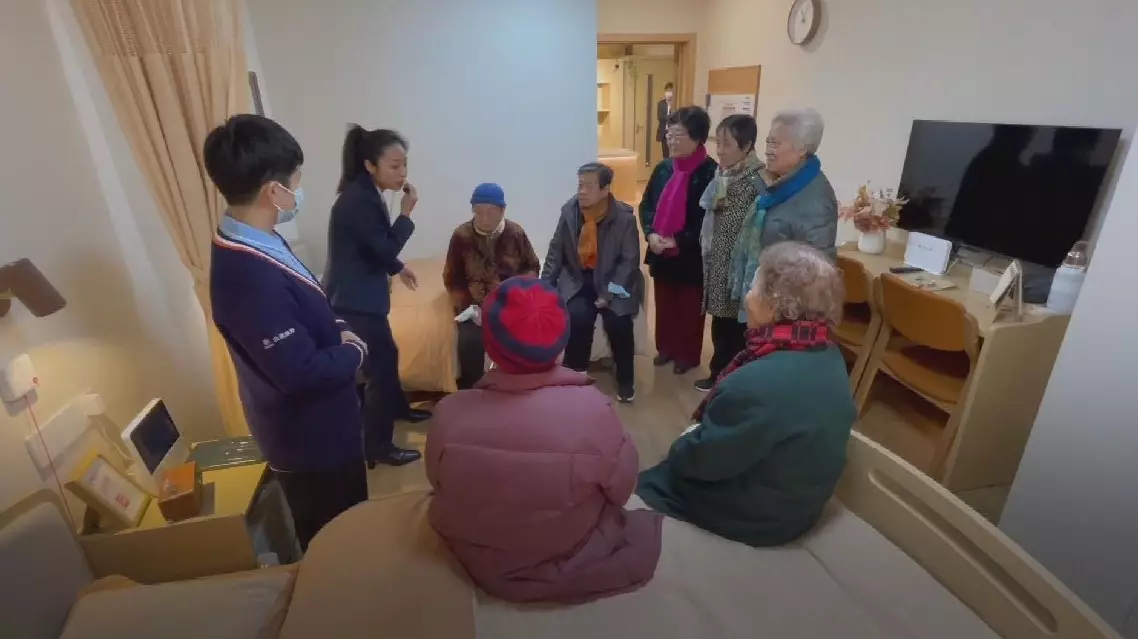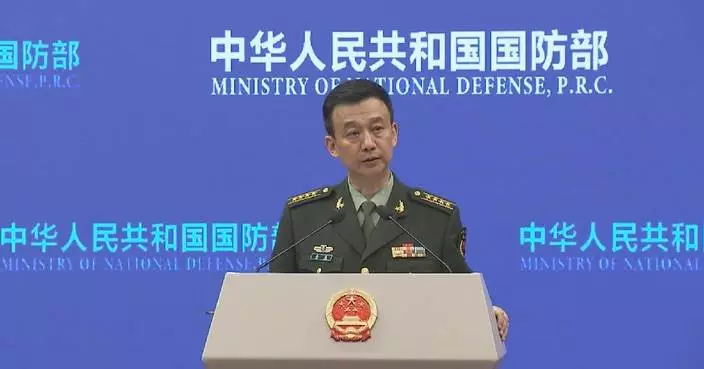As China's population ages, the elderly care industry is rapidly becoming a key driver of the country's socioeconomic development, according to Cheng Haijun, a professor at Beijing College of Social Administration.
In a recent interview with China Global Television Network (CGTN) in Beijing, Cheng highlighted the growing importance of elderly care services, which have evolved from being viewed as a social cause to being recognized as a thriving industry.
This year, China's elder care economy topped 2 trillion U.S. dollars in terms of economic value, a whopping figure that speaks volumes to the importance of the industry's future as the country strives to take better care of its retirees.
"In fact, the 18th National Congress of the Communist Party of China (CPC) (held in 2012) already mentioned China should actively address population aging and vigorously develop old-age services. The 19th National Congress of the CPC (in 2017) proposed that we should provide integrated elderly care and medical services. The 20th National Congress of the CPC (in 2022) put forward treating elderly care both as a cause and an industry. On January 5 this year, the executive meeting of the State Council proposed to develop the 'silver economy'," he said, using a term used in China to describe the growing prominence of elder care services.
The elderly care industry, combining products and services, would meet the needs of the aging population while driving economic growth and creating jobs, according to Chen.
"The silver economy is a very large industry. Then, how can we implement it to meet the needs of the elderly and reflect their daily requests? From this perspective, there are two aspects: products and services. For example, in terms of products, there are elderly communities, elderly residences, home adaptation for the elderly, home adaptation for the elderly, rehabilitation assistive devices for the elderly, smart products for the elderly, and various appliances for the elderly. These are the products that the silver economy offers. Another aspect is services for the elderly. This is an equally important part of the elderly care industry. In the past, it was regarded as a great cause. Now in fact, it is an industry because the elderly can drive consumption," he said.
"We need to develop a new pattern, with new tasks, new requirements, new tracks, and new economic growth points. I believe that products combined with services represent the real, practical needs of the elderly care industry in the future. The elderly care industry holds extremely broad prospects. It not only serves the elderly, but more importantly, it can create jobs, boost GDP, and provide a service for improving people's livelihoods across the whole society," he said.

Elderly care industry boosts economic growth, improves livelihoods in China: expert










